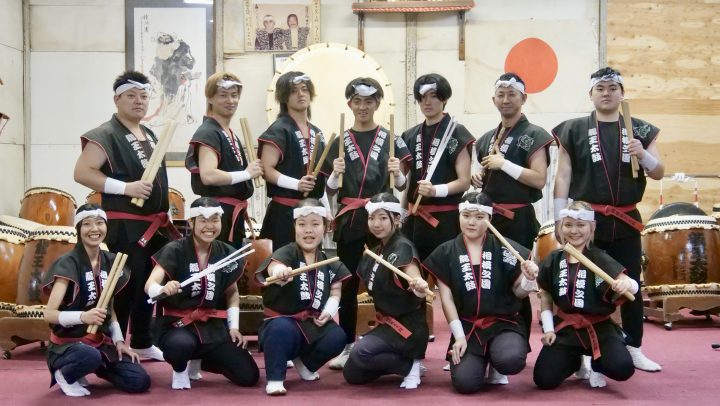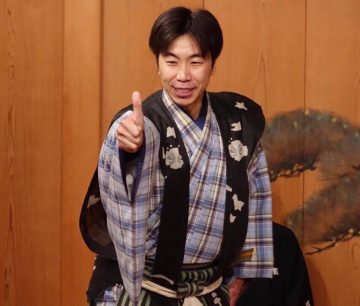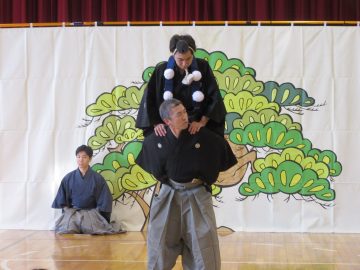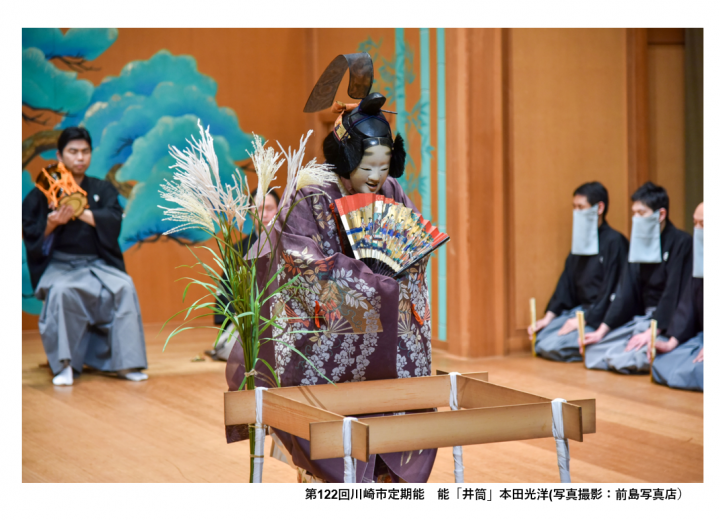The summer airing out time passes peacefully
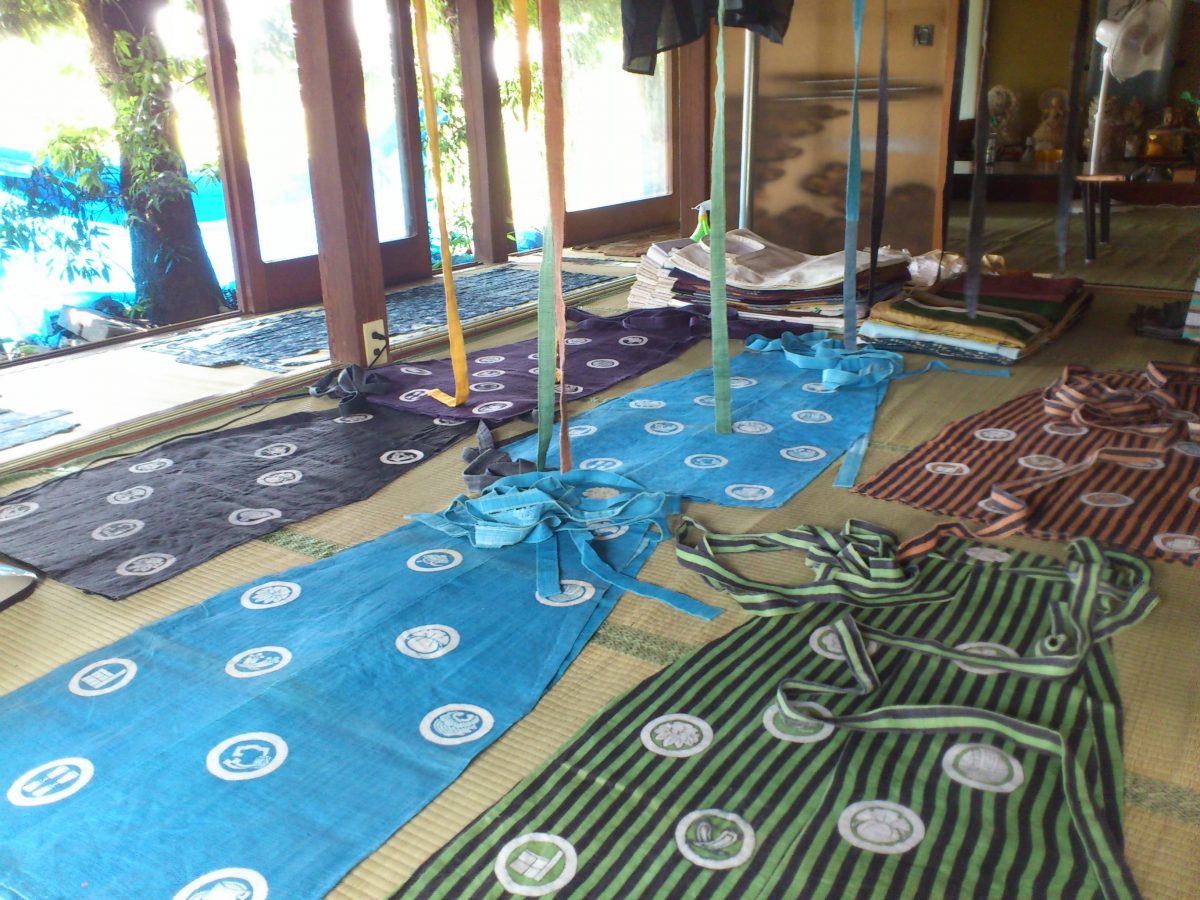
A stage for Kyogen performers living in the 21st century
Vol.9 Summer airing
Ozo doctrine (Noh performer Kyogen style Ozo school)
Summer vacation, swimming in the sea, playing in the river, fireworks, Bon Odori, airing out clothes
Both are typical summer scenes.
Some people may not be familiar with the term "mushi-boshi," but for us, airing out costumes is an annual summer event. By taking out the costumes that are usually stored in the costume storehouse and letting them dry in the wind, insects will not come near them in the winter, which means it will prevent them from being eaten by insects.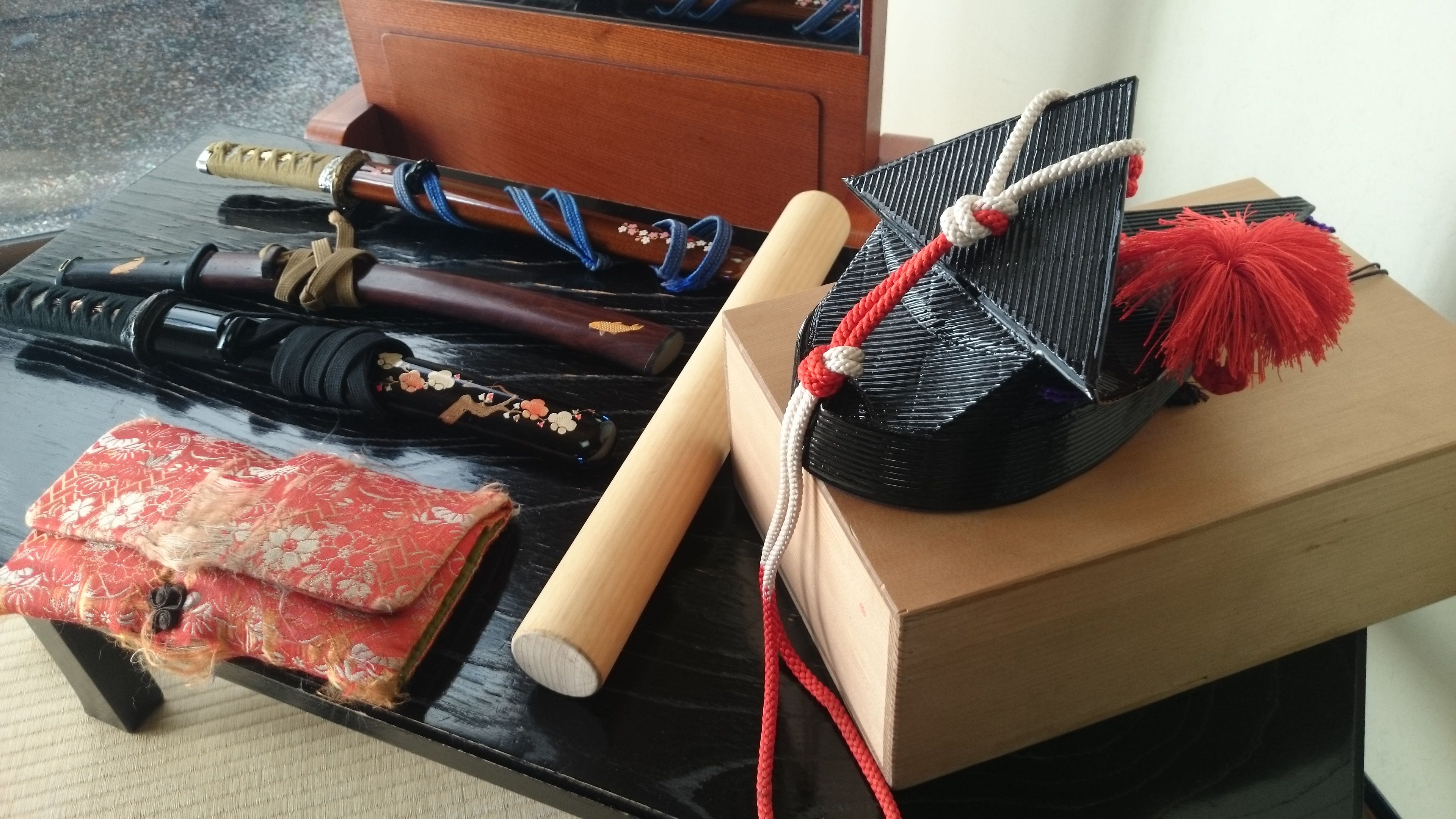
I don't know how many costumes we have in our house, but it would be difficult to air them all out in one season. I narrowed down the items that needed care and spent 3-4 days doing that intensively.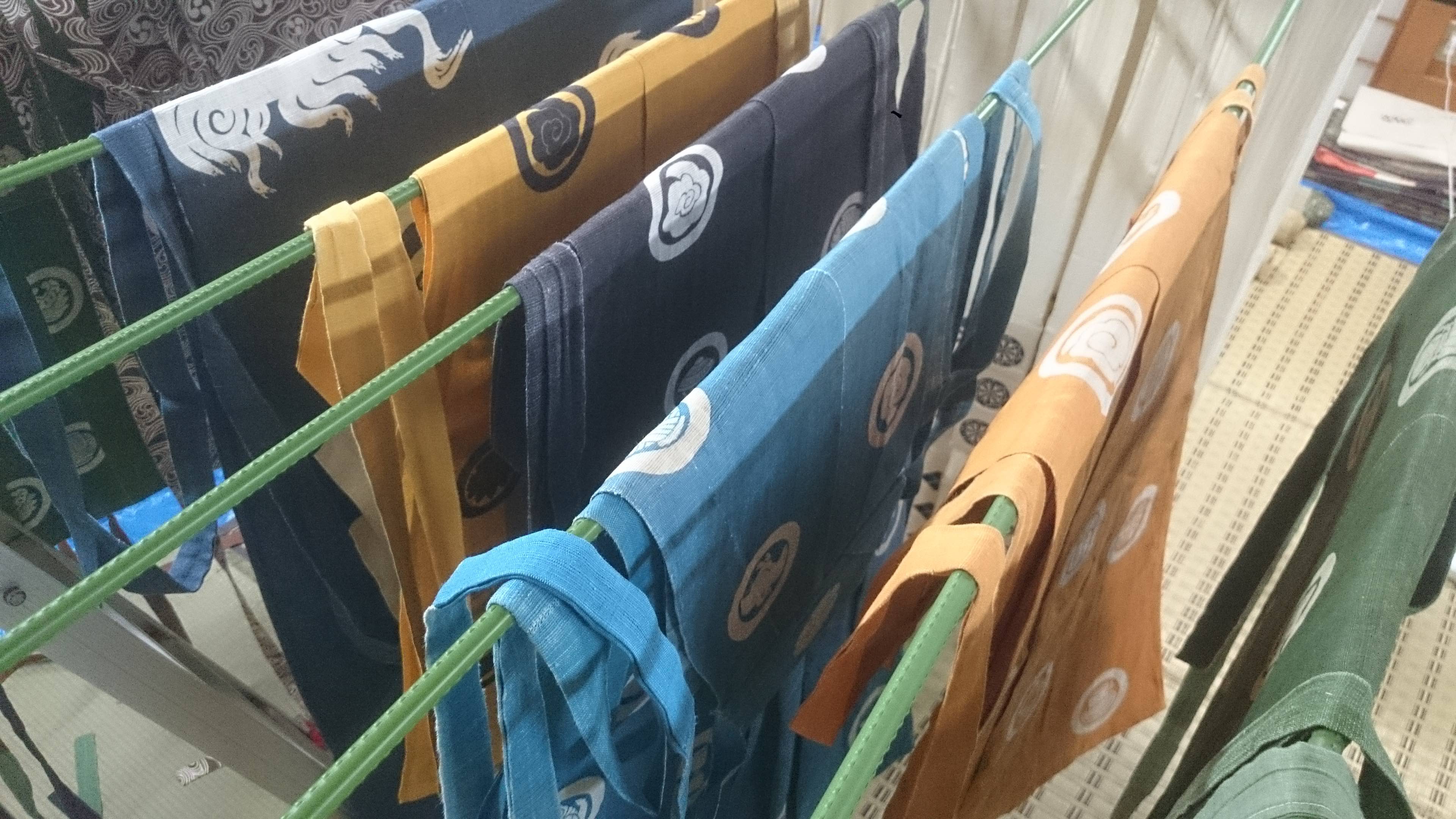
Costumes used as "Uwagi" (outerwear), such as large stripes worn under the outer garment, as well as costumes made of haku, atita, and karaori, are all made of pure silk, so they are hung on a clothes rack and left to dry in a well-ventilated place. It is important to check the condition of the costumes as they dry and repair them as necessary. If the fraying is only slight, they can be repaired by applying a patch, but if it is too severe, they can be sent to a costume shop to have it repaired.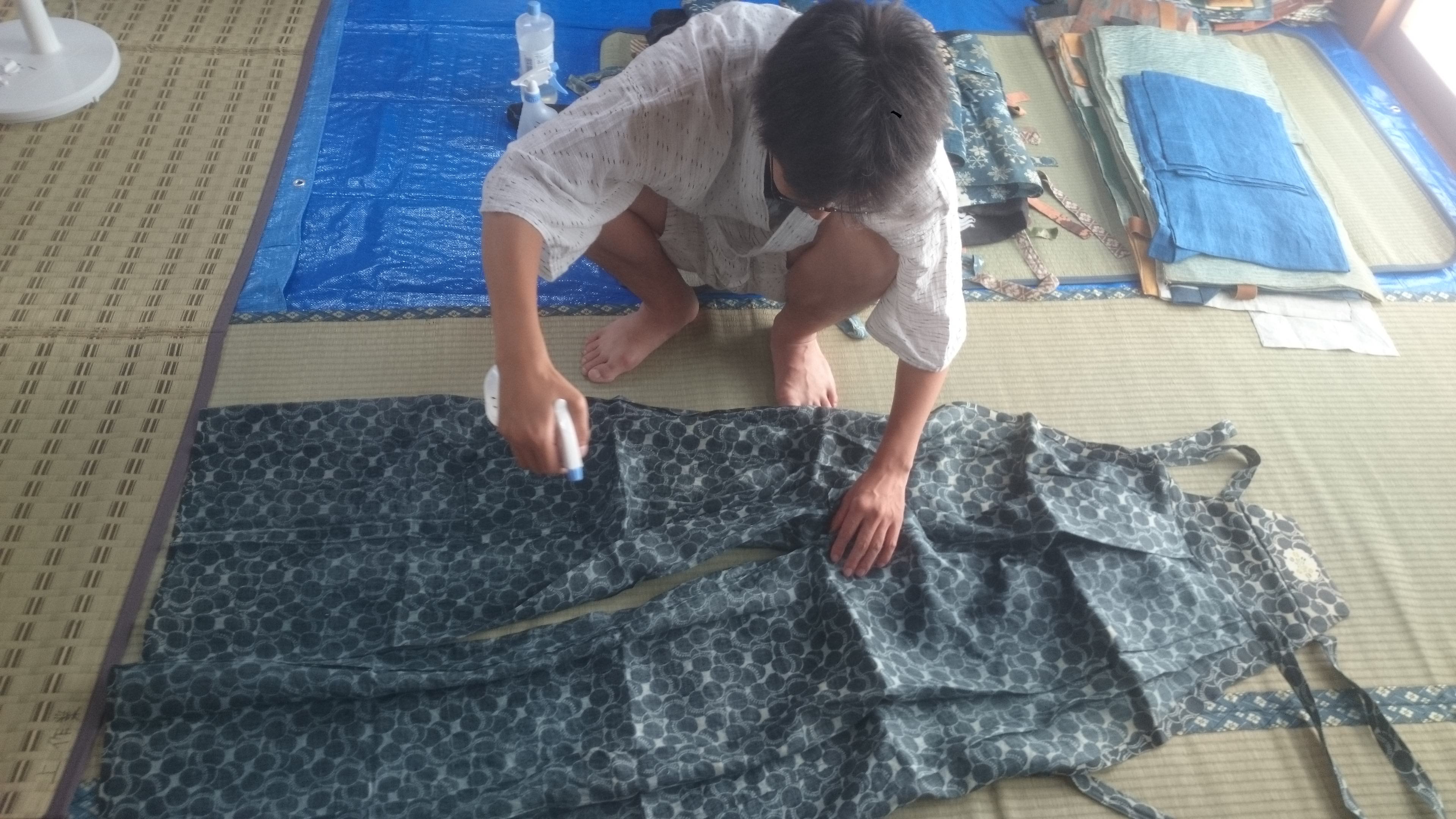
Kyogen hakama, nagakamishimo (long kimono), suou (plain robes), and other costumes are made of hemp, so they are cared for using traditional methods. First, they are carefully coated with water-diluted laundry starch using a brush. They are then neatly folded onto a straw mat, and another straw mat is laid on top of that, with four or five adults standing on top and stomping on it. This presses the hakama neatly, removing any dust or dirt that may have accumulated on them. Once they are dried, not only are they restored to their crisp condition, but the coating of the starch also makes them less susceptible to stains.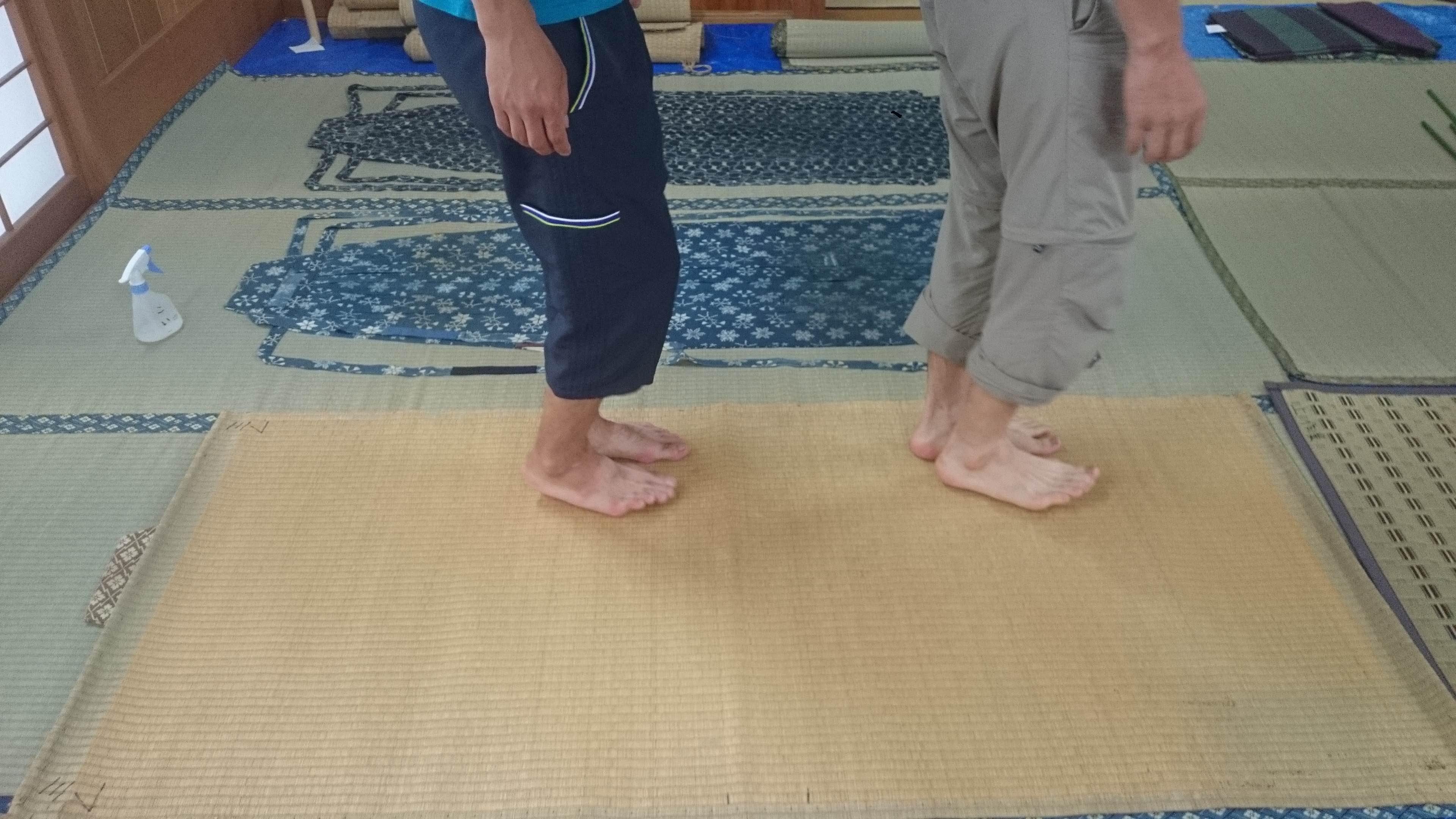
Costumes and props are tools of the trade for us, and we were strictly taught from a young age how to handle them. Stepping on or stepping over them is completely out of the question. Even the way they are folded is checked to make sure they are folded correctly.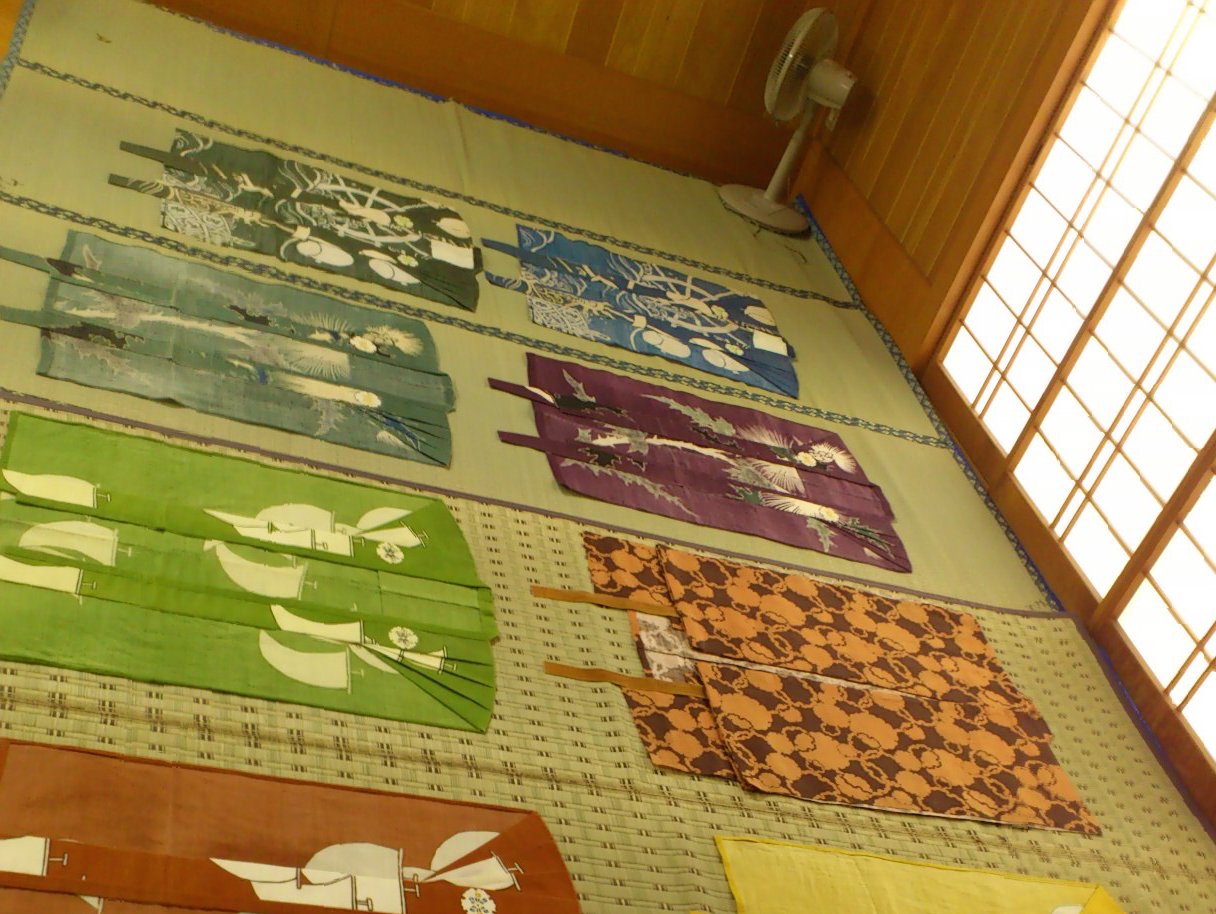
Generally, the performers themselves are responsible for caring for these costumes, but when there is a shortage of manpower, they may ask their apprentices to help.
The cheers of children playing in the water, the sound of wind chimes, bamboo blinds swaying in the wind, and watermelon and ice cream being brought in as gifts.
The time that passes harmoniously as we all chat together feels somehow nostalgic, like a traditional Japanese landscape, and is one of my favorite summer scenes.
